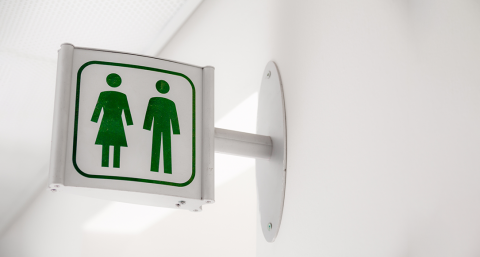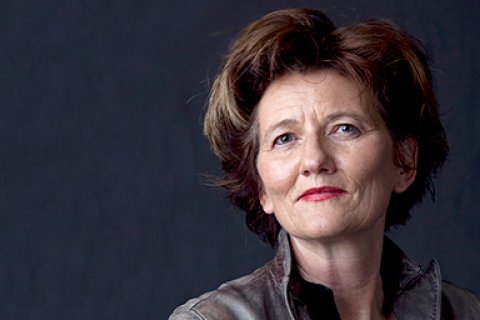“Gender-neutral forms of address are a practice in civility”
Professor of Art, Culture and Diversity Rosemarie Buikema

Gender neutrality and gender diversity are on the rise. For instance, more and more municipalities introduce neutral toilets and gender neutral forms of address. On the train, ‘ladies and gentlemen’ has been replaced by ‘travellers’ as well. In the Dutch newspaper de Volkskrant, Prof Dr Rosemarie Buikema and Christine Quinan (Gender Studies) explain why this seemingly small change in addressing people has a big impact on how people interact with each other.
Not everyone feels directly at home in the category ‘male’ or ‘female’, but is somewhere else on the spectrum: intersex, queer, transgender. Still, this diversity in gender has not been integrated in the way we address each other. According to Buikema, the decision to replace ‘ladies and gentlemen’ with ‘travellers’ proves a willingness to integrate gender diversity into the daily interaction with each other: “On a train, it matters that all of you are travellers and not whether you're male or female. That then justifies the question: why do we gender all the time?”

When someone feels excluded by a sex-specific address such as 'ladies and gentlemen,' we shouldn't think: ‘what a whiner,’ the professor contends. “Instead, try to continuously focus on the similarities in the positions and the interests you share together.”
To Buikema, this focus on communality and inclusion is one of the core values of diversity: specifically that “the binary thinking is broken open, because you are in different positions and in changing situations all the time. It's good to address what you share and name what you do together. That's a practice in civility.”
DEMOCRATIC SOCIETY
But there is still much scepticism regarding ungendered forms of address; the group of people who do not fit in the category ‘male’ or ‘female’ is relatively small, so why should we pay that much attention to it? To Buikema, it is exactly this scepticism that shows why gender-neutral language is so important. “This discussion is not about an unimportant detail, but is part of a much bigger project: that a democratic society in principle aims to let minority positions be heard, too. I think that the scepticism regarding diversity showcases that people see democracy as a system that legitimises the voice of the majority.”
Doubt and diversity are two sides of the same coin
The official Opening of the Academic Year is on 4 September, with Dare To Doubt as its theme, to Buikema's joy. To Buikema, doubt and diversity are actually two sides of the same coin: “Diversity thrives on the realisation that you are always within your own position.”
She explains: “That is only one position and it is situated. That position brings specific knowledge, but blind spots as well. And that's okay: that comes with the production of knowledge, that you're always within a specific context and that you answer for that in the most positive case. Doubt in science would mean that you realize you can never have the last word.”
Rosemarie Buikema is the President of the Graduate Programme Gender Studies and coordinates the GEMMA Erasmus Mundus programme within it. In March of this year, Buikema’s most recent publication, Revoltes in de Cultuurkritiek was published by Amsterdam University Press.

